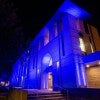
Rice recognizes World Teachers' Day
The Anderson-Clarke Center was illuminated in blue Oct. 5 to shine a light on those who have taught through overwhelming circumstances during the last year and a half.

Rice recognizes World Teachers' Day
The Anderson-Clarke Center was illuminated in blue Oct. 5 to shine a light on those who have taught through overwhelming circumstances during the last year and a half.
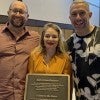
Former glacier inspires orchestral work
Okjökull first made international headlines when Rice anthropologists organized the first memorial service for a glacier lost to climate change.

Rice economist Yunmi Kong honored with young scholar award
Yunmi Kong, an assistant professor of economics at Rice University, is the recipient of a Korea-America Economic Association (KAEA) Young Scholar Award.
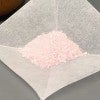
Manganese makes its mark in drug synthesis
Rice University chemists find manganese far superior to silver and cerium as a way to make building blocks for drug design and manufacture.
James DeNicco grilled venison sausage Oct. 2 for Baker’s annual Deers and Beers bash.
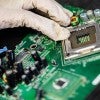
Urban mining for metals flashes electronic trash into treasure
Flash Joule heating recovers valuable and toxic metals from electronic waste. The process allows for “urban mining” of resources that could be a win for the environment as well as for manufacturers.
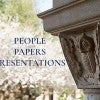

Rice remembers Miah Im, director of opera studies
Miah Im, Rice's dynamic director of opera studies who was celebrated in the opera world for her depth of experience, commitment to developing young artists and generous and supportive nature toward peers and performers alike, passed away Sept. 30 after a battle with pancreatic cancer. She was 47.

OpenStax founder Baraniuk wins ‘Nobel Prize of education’
Richard Baraniuk has been awarded the Harold W. McGraw, Jr. Prize in Education.
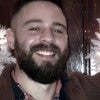
Rice remembers Hugh Davis, access services assistant at Fondren Library
Hugh “Hughy” Davis III, an access services assistant at Fondren Library, died Sept. 23. He was 30 years old.
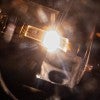
Corps of Engineers funds bid to ‘flash’ waste into useful materials
A $5.2 million U.S. Army Corps of Engineers grant will expand Rice efforts to recycle waste into valuable products through flash Joule heating.
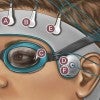
US Army backs ‘sleeping cap’ to help brains take out the trash
Rice engineers are developing a noninvasive device to understand how the brain disposes of metabolic waste during sleep.

Sylvia Dee wins fellowship to launch Gulf of Mexico study
Sylvia Dee, an assistant professor of Earth, environmental and planetary sciences, wins an early-career fellowship to pursue Gulf of Mexico research.